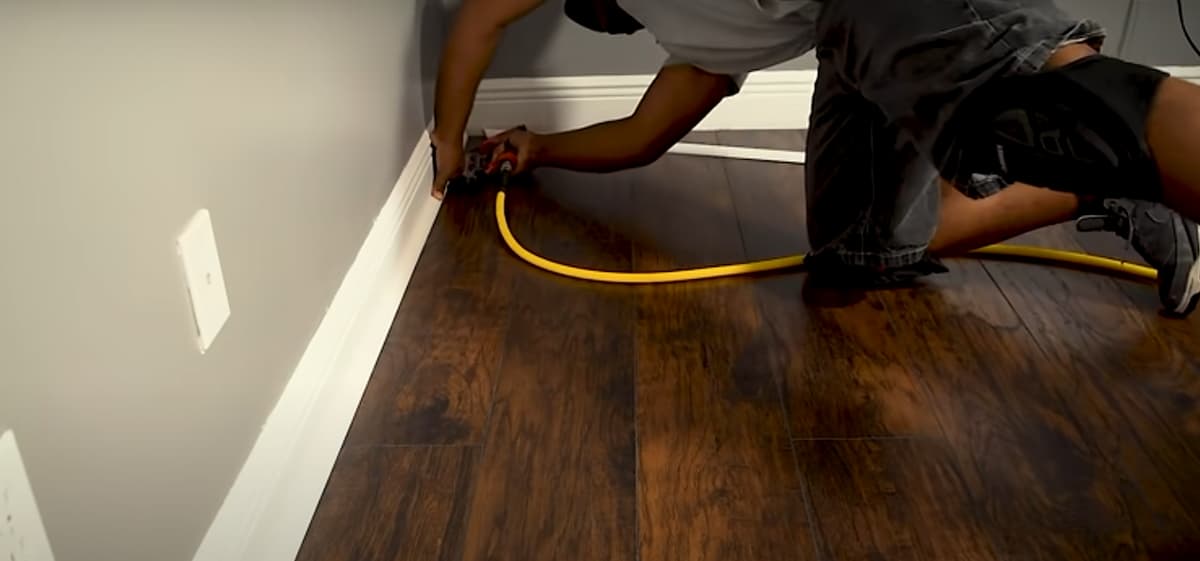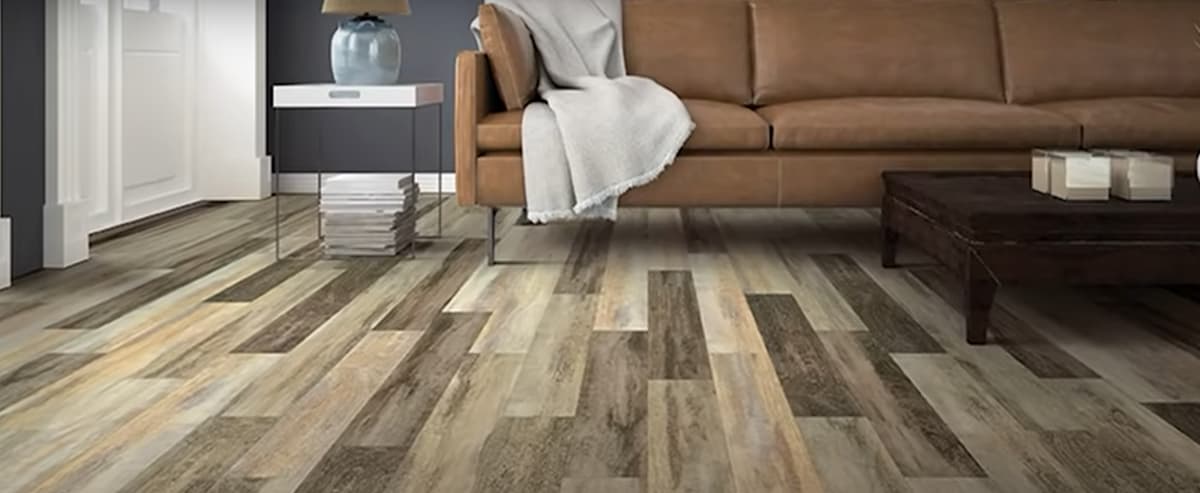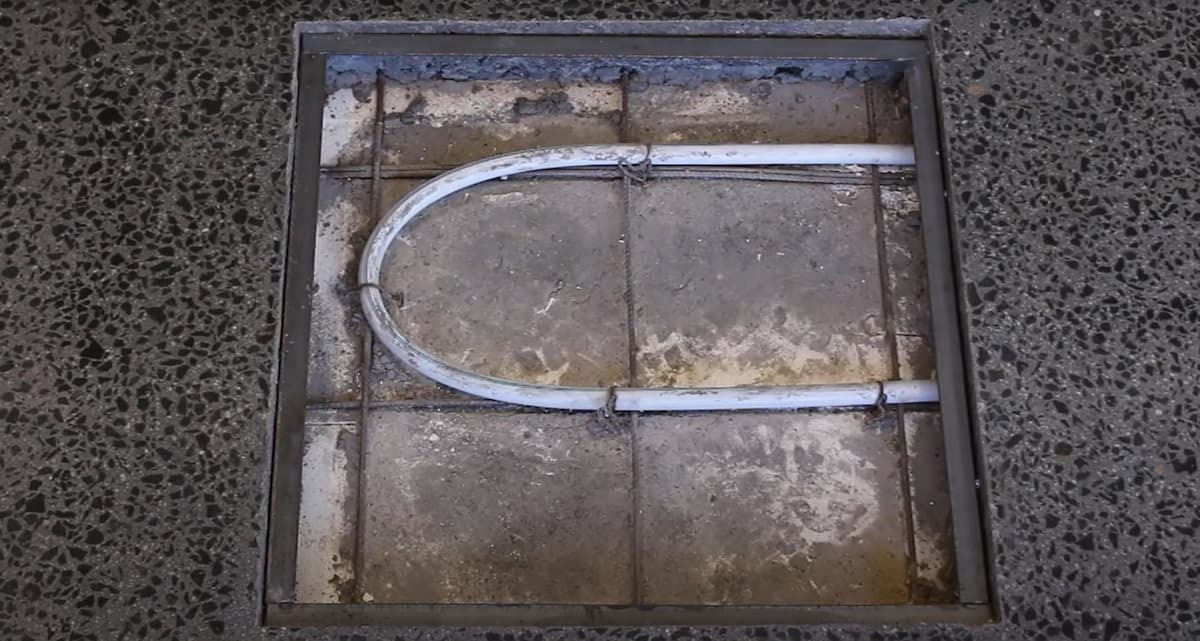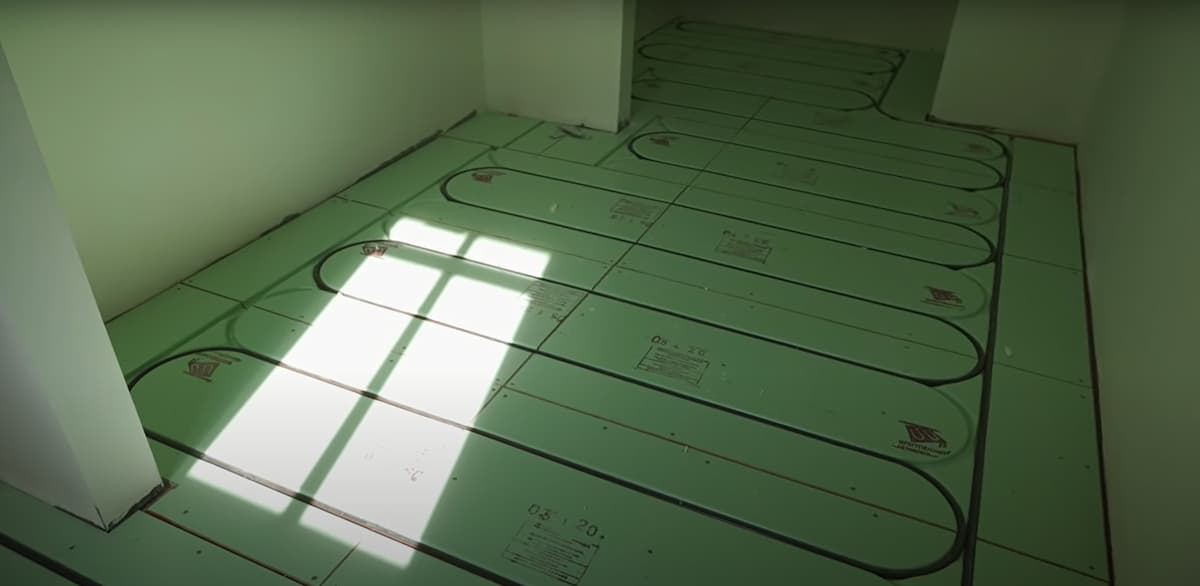
Hybrid flooring is a combination of two types of materials, typically installed over a plywood subfloor. Hybrid floors can be made from wood, vinyl or laminate.
Hybrid floors combine the benefits of both hard and soft flooring types, and they are durable and beautiful. The hybrid flooring process begins with a substrate, usually plywood or oriented strand board (OSB) that is glued onto the subfloor in order to give it additional stability. This layer serves as the base for your new floor covering.
Types of Hybrid Flooring Combinations
There are a few types of hybrid flooring combinations that can complement each other additionally.
These include:
- Engineered oak with a solid vinyl plank (OS/MVP)
- Engineered maple with a solid vinyl plank (MM/MVP)
- Solid wood with the engineered board (WB/MVP)
What are the Benefits of Having a Hybrid Floor?
Hybrid floors bring together all the advantages of both hard and soft types while avoiding their weaknesses. Hybrid flooring is durable, water-resistant and easy to maintain, it also looks like luxury without servicing costs. Additionally, these hybrid floors do not require waxing or polishing, but they still shine like luxurious parquet.
Engineered Type Hybrid Flooring
If you install engineered type hybrid floors over your plywood subfloor, you can experience the beauty of solid wood, while maintaining its durability. Install hybrid flooring and it can be a great way to lower your utility bills since you do not need to heat or cool rooms with hybrid floors.
Laminate Hybrid Flooring
On the other hand, if you choose a laminate floor over your plywood subfloor, you can enjoy all the benefits and easy maintenance associated with this type of covering, without sacrificing the look and feel of natural hardwood. This combination is also water-resistant and very durable. Moreover, it requires no special care or treatment in order to keep looking great.
Laminate/cork Hybrid Flooring
Laminate/cork hybrids are another option that has equally impressive benefits. The biggest advantage here is that they add major value to your home due to their pleasant aesthetic. They’re made from 95% real cork, which also contributes to their eco-friendly nature. In addition, this combination is water-resistant, durable and very easy to clean with a damp cloth.
Manufactured Vinyl Planks Hybrid Flooring
On the other hand, manufactured hybrid vinyl floor planks can be installed on top of your plywood subfloor in order to get all the luxury of plank floors without any limitations. Hybrid vinyl planks by themselves are a high-quality flooring option, and they can help you save money by cutting back on your heating and cooling bills, especially if on a very tight budget.
The Pros of Hybrid Flooring
Hybrid flooring is affordable, easy to install and available in a wide variety of styles. For people who are looking for something other than the traditional laminate flooring or tiles, this type of flooring can be an exciting option.
Highly Customizable Hybrid Flooring
Many of the solid wood floors that you can purchase today are actually manufactured in a plant and then finished on site. This means that your floor is not only affordable, it’s also customizable to your specifications.
Since hybrid flooring allows you to select from different materials, such as engineered boards or vinyl plank flooring, you get more choice and design flexibility than with some other types of floors.
As we mentioned before, this type of flooring combination can replicate the look and feel of natural hardwood while still delivering beauty and durability as tiles do. Unlike tiles, however, hybrid floors do not require any special maintenance.
The Cons of Hybrid Flooring
Because hybrid floors require two layers instead of one coating like most hardwood floors need, they tend to be somewhat thicker, at their thinnest, they’re still about 2cm thick, while most carpeting is around 1cm thick.
In many areas of the house, such as kitchens and bathrooms, this thickness may be a hassle to work around during the hybrid flooring installation. As your flooring installer begins installation in these areas it becomes more difficult to move appliances and cabinets back into place because there’s a greater risk of injury from the weight and consequences if the installer accidentally drops something on a client’s foot.
Hybrid Flooring is Slippery When Wet
As with all types of manufactured hardwood floors, hybrid floors tend to be slicker than traditional hardwood or laminate. This increases the likelihood of slipping if someone has wet feet or spills liquids on the floor. In addition to posing safety risks, this can also cause damage to the flooring, which is another thing that could be considered before installation.
Harder Installation for Hybrid Floors
Hybrid floors are generally more difficult to install than other types of hardwood flooring, making them a better choice for those who want the look and feel of hardwood without paying an arm and a leg for the project. They’re also generally easier to maintain than natural wood floors, as they require fewer coats of finish during installation and do not need to be refinished as often as solid hardwoods.
Laminate Flooring
Laminate flooring is an affordable option that’s quickly becoming one of the most popular options for homeowners looking to revamp their homes. This replacement flooring type is composed of at least three layers underneath a highly durable, scratch-resistant surface layer. Laminate floors can be installed over old surfaces or even directly onto an unfinished subfloor.
Hybrid Vinyl Flooring
Hybrid vinyl flooring is an innovative product that combines natural materials with the likeness of vinyl. It is made from a solid recycled wood base, then dipped into a polyurethane resin that dries 10 times faster than traditional hardwood flooring. The end result are high-value hybrid floorboards that can be used in almost any residential or commercial space and its installation does not require sealing or waxing afterwards, which makes it an eco-friendly solution because of the recycled wood.
Laminate or Vinyl Flooring
More and more people are choosing laminate or vinyl flooring for its affordability, durability and ease of installation. These materials can be easily installed over most existing surfaces, such as tile, plywood, concrete and even wood floors. You can even install these types of flooring in areas that may have moisture issues such as the kitchen or basement with the proper prep work.
This type of flooring can also come with a high-gloss finish, giving it a more luxurious feel and look, but is usually much less slippery than traditional hardwood floors. With so many benefits to choosing hybrid vinyl flooring or laminate flooring for your home or business, there’s no reason not to consider these options for your next flooring project.
Which Hybrid Flooring is Better, Thicker or Thinner?
Both can be thicker or thinner depending on the company making them. What might surprise most people is that most board materials are only 1cm thick, which is just slightly larger than hybrid vinyl flooring. Some engineered boards are even made with a bamboo layer and others use MDF (medium density fiberboard) as their core instead of plywood. The core is usually around 19mm-25mm thick.
The Thickness of Hybrid Floors
Don’t let the hybrid flooring thickness fool you, most imitation or engineered hybrid floors can be just as durable and long-lasting as traditional solid hardwood floors. The only difference is that some hybrid flooring is easier to install, more affordable and may never need refinishing. That alone makes hybrid flooring a great option for most people.
The thickness of your flooring may determine its ability to withstand certain treatments. If you are planning on having any furniture or appliances moved in, especially anything with wheels, then an engineered hardwood floor is probably not the best choice for you.
Timber Floors vs Hybrid Flooring
Timber floors are beautiful, but it’s also quite expensive and has a tendency to expand or contract according to the humidity in your home which can result in cracks if you have a less than perfect subfloor. Some engineered products offer a little bit of giving that can prevent some of these problems from occurring when installing wood floors.
If you’re looking at project cost for your flooring project, then engineered hardwood flooring may often be less expensive than solid wood floors. The increased popularity of these products has made them more affordable and they can even be recycled or disposed of in an environmentally conscious way if that is something that appeals to you.
Solid wood floors can be sanded down and refinished several times over the years which makes them more durable under high traffic conditions.
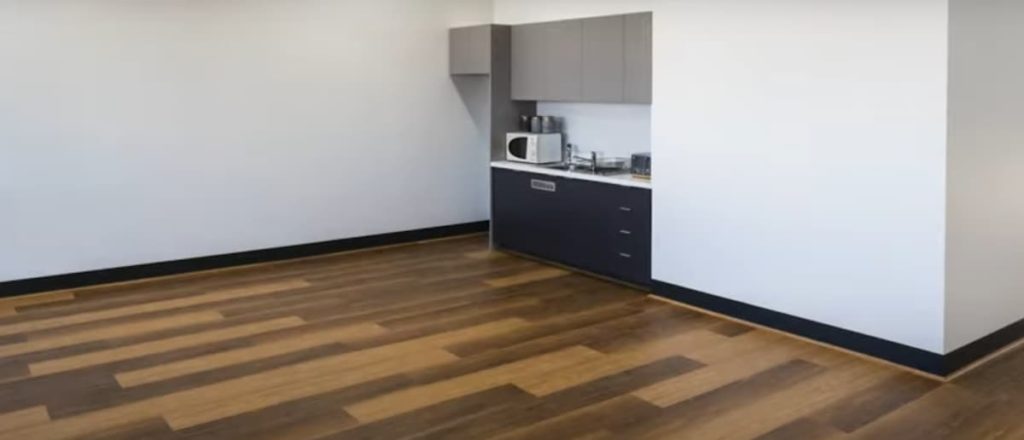
Is Hybrid Flooring Waterproof?
Hybrid flooring is very water-resistant, but that does not mean it cannot be damaged by moisture. If you spill a liquid onto the floor and allow it to stand there for a period of time, then it can damage your new floor. It’s also important to wipe up any standing water as quickly as possible since this can also cause problems with mould or mildew if left too long.
Unlike traditional solid wood floors, hybrid vinyl flooring may not absorb liquid like a sponge and they resist swelling due to humidity changes in your home which means that spills on these types of floors can be easily cleaned up with some warm water and soap without causing any damage.
Are Hybrid Floors Durable?
Hybrid flooring can be just as durable as traditional solid wood floors, but it may depend on the type of core material used to make this type of product. If you are looking at an engineered product with a bamboo or MDF core instead of plywood, then these products may not be very durable over the long term.
Solid hardwood floors usually have a thicker core material that is more suitable for high traffic conditions and maybe even some furniture moving every now and again. Not all engineered hybrids use laminated veneer lumber (LVL) or other similar materials for their cores, but many do because they are affordable and there’s no need for matching flooring pieces, so production time is cut down quite a bit which reduces costs.
Is Hybrid Flooring Easy to Clean?
Hybrid flooring is just as easy to clean as traditional solid wood floors. If you have a dirty spot on your floor then a quick sweep or vacuum could remove any debris that might be caught up in the fibres. You can also use a dust mop, dry cloth or other methods for regular cleaning of your new floor which may prolong its life and appearance.
Does Hybrid Flooring Require a Flat Floor?
Hybrid flooring is very resilient and does not require a perfectly flat subfloor, but it’s still best to have as the level of a surface as possible. Any unevenness in your floor may be visible under the new hybrid floorboards and may detract from their appearance. These types of hybrid floorboards can span up to 3/4 inch (19mm) difference in height across the width of your room, but that may vary by product manufacturer and installation methods used by your installer.
Stone Plastic Composite
A stone-plastic composite (SPC) is a construction material typically made from an inorganic aggregate such as stone or gravel, and a polymeric binder such as high-density polyethylene (HDPE), polyvinyl chloride (PVC) or Polypropylene. The binding agent typically contains an acrylic plasticizer to prevent cracking and weathering. The SPC may be non-reinforced or reinforced with fibres, depending on the intended usage. The benefit of combining material is in the results
One is more durable, while the other can be more expensive in appearance, but less durable.
Wood-plastic Composite
Wood-plastic composite (WPCs) are composite materials made of wood fibre/wood flour and thermoplastic.
These WPC hybrid floors are manufactured by forming, pressing and bonding the mixture of wood flour and thermoplastic. WPC products combine the best qualities of wood and plastic, such as natural beauty and durability, respectively.
One is more durable, while the other can be more expensive in appearance, but less durable. WPCs cannot be used for outdoor applications because of the low durability of wood fibres.
Which is Thicker, WPC or SPC?
Both are sold in many thicknesses, but none of them is thicker or thinner. SPCs and WPCs have the same thickness.
Summary
The best part about installing hybrid flooring is that you get the best of both worlds. Being a combination, flooring can be made for durability and beauty at the same time, while being easy to install as well as affordable. The only drawback is that some types are more expensive than others are, but it all depends on what exactly you want from your flooring.


